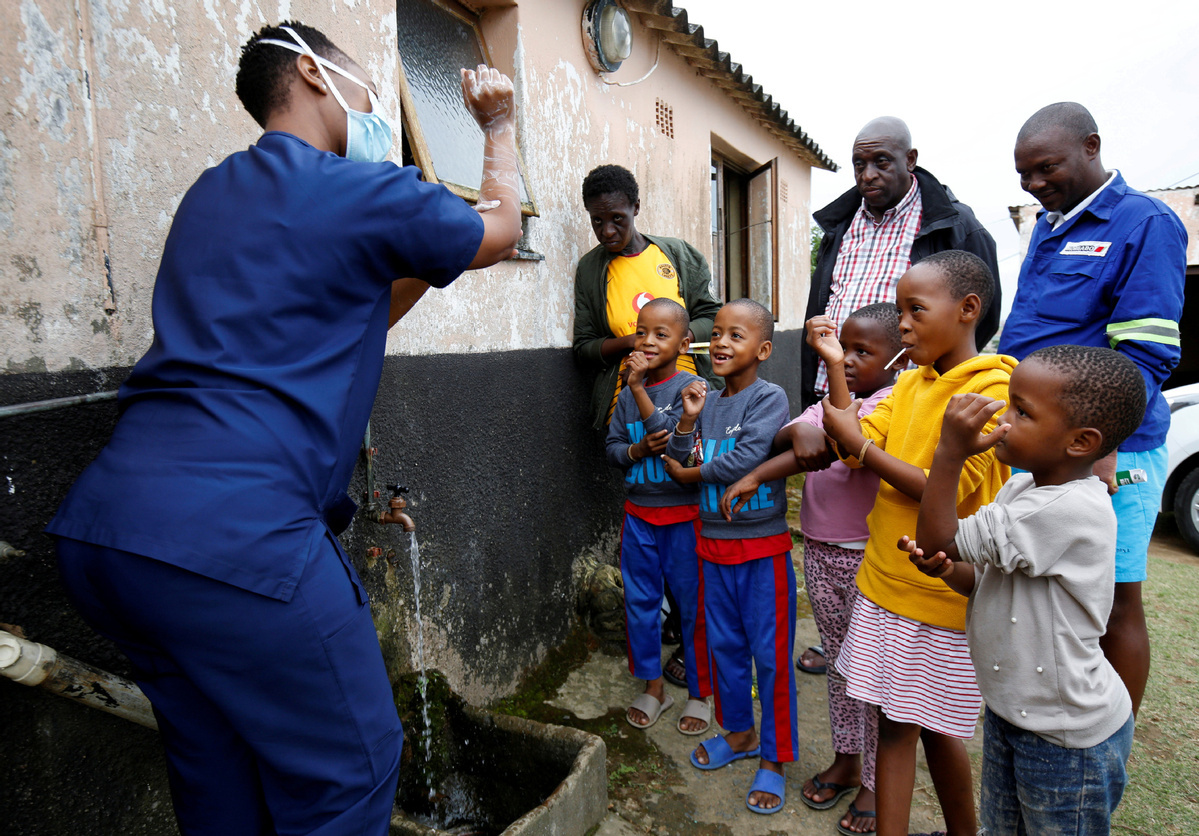
A health worker teaches children how to wash their hands during a door-to-door testing in an attempt to contain the coronavirus disease (COVID-19) outbreak, in Umlazi township near Durban, South Africa, April 4, 2020. [Photo/Agencies]
As daily lives and communities are upset by the coronavirus pandemic, concern is mounting that children's exposure to violence may increase. Children with a history of abuse may find themselves even more vulnerable, and may experience more frequent and severe acts of violence. Others may be victimized for the first time.
A new UNICEF publication, Protecting Children from Violence in the Time of COVID-19: Disruptions in Prevention and Response Services, documents what has happened to such services in Africa, as well as other continents.
According to UNICEF, the Ebola outbreak in West Africa revealed how systems such as child welfare structures and community mechanisms were weakened and child protection responses were delayed or otherwise affected.
That is why a systematic review that explored child abuse within the context of natural disasters and conflicts found that, while the level of violence against children increased after the onset of many emergencies, reporting of such violence was lower as a result of disruptions in services, infrastructure and reporting mechanisms.
However, the UNICEF report revealed Africa has fared well due to lessons learned from the previous outbreak and ranks fourth in global regions for reporting service disruptions. South Asia has the highest proportion, followed by Eastern Europe and Central Asia.
In Kenya for instance, several measures have been put in place following the coronavirus outbreak, including technical and financial support to the Child Helpline, which now allows counselors to access calls remotely and advocacy to include child protection as an essential service in the COVID-19 response.
Elsewhere, in Guinea-Bissau, support for mobile services in urban and rural settings to prevent domestic violence, violence against children, child marriage and female genital mutilation in 109 rural communities and the city of Bissau were carried out until the end of June 2020.
Violence prevention and response services have been severely disrupted during the COVID-19 pandemic, leaving children at increased risk of violence, exploitation and abuse, according to the global survey by UNICEF.
Henrietta Fore, UNICEF Executive Director, said "we are just beginning to fully understand the damage done to children because of their increased exposure to violence during pandemic lockdowns."
"Ongoing school closures and movement restrictions have left some children stuck at home with increasingly stressed abusers. The subsequent impact on protection services and social workers means children have nowhere to turn for help." Fore said.
The report noted as countries adopted prevention and control measures to contain the coronavirus, vital violence prevention and response services were suspended or interrupted as a result. More than half of the countries reported disruptions in case management, referral services and home visits by child welfare and social workers to children and women at risk of abuse.
"Too many children rely on child protection systems to keep them safe. In times of crisis, governments must have immediate and long-term measures that protect children from violence, including designating and investing in social service workers as essential, strengthening child helplines and making positive parenting resources available," Fore said.


